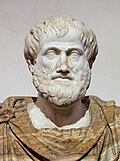Republicanism
Republicanism is the ideology of governing a nation as a republic with an emphasis on liberty and the civic virtue practiced by citizens. Republicanism always stands in opposition to aristocracy, oligarchy, monarchy, and dictatorship. More broadly, it refers to a political system that protects liberty, especially by incorporating a rule of law that cannot be arbitrarily ignored by the government.
United States
According to John Adams, “They define a republic to be a government of laws, and not of men.” Much of the literature deals with the issue of what sort of values and behavior by the citizens is necessary if the republic is to survive and flourish; the emphasis has been on widespread citizen participation, civic virtue, and opposition to corruption.
Commonwealth realms
Many Commonwealth realms (countries which have the British Monarch as their head of state) have political movements to become republics. For example, the Prime Minister of Jamaica said that it will become a republic by 2025. In 1999, Australia had a vote to decide whether or not to keep the monarchy. The result was a majority supporting the monarchy.
Republicanism Media
Sculpture of Aristotle
Portrait of Niccolò Machiavelli
Portrait of Pasquale Paoli
Portrait of Oliver Cromwell
Portrait of Montesquieu
Portrait of Jean-Jacques Rousseau
Portrait of Theobald Wolfe Tone
Other websites
- Stanford Encyclopedia of Philosophy entry
- Res Publica: an international anti-monarchy Web directory Archived 2009-12-03 at the Wayback Machine









